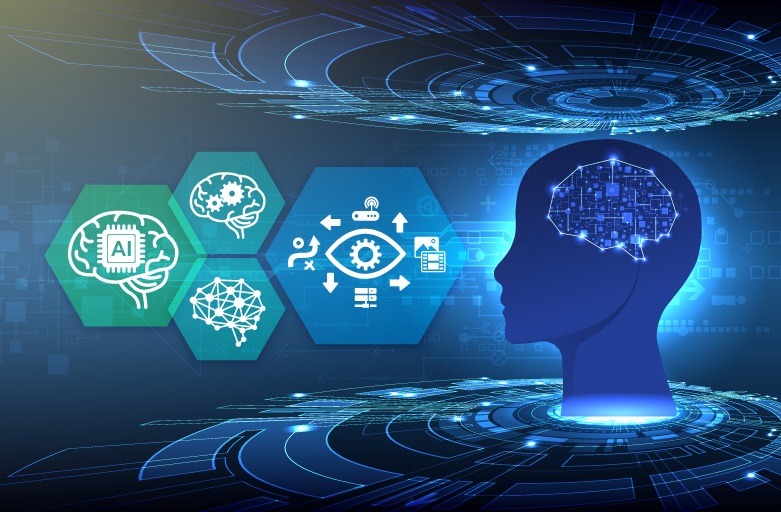AI will be offering about 133 million new jobs by 2022
- The Enterprisers Project
The world is constantly evolving with several technological advancements in Artificial Intelligence (AI). It has an impressive impact on several machines from the android system in phones to automated cars. The impact of AI is extensively growing in many industries.
Why study ML and deep learning?
Machine Learning (ML) and Deep learning are booming fields that provide exciting career opportunities for qualified and skilled professionals. Not just big tech firms, but also medium and small enterprises are embracing these technologies, and have adopted their usage for offering better services and products, from the healthcare industry to aviation, to security and manufacturing.

This resulted in the huge rise of the job market, and the demand for AI Jobs and ML professionals has increased.
How to get started in ML and Deep Learning?
People who want to be a part of these fields are required to have a good knowledge of certain skills followed by academic prerequisites.
· Education
To get into these fields the most vital prerequisites is a strong technical background, as these are highly technical fields. Having good knowledge of ML and deep learning with a degree is something various industries will look for before hiring an individual. One must have a bachelor’s degree either in computer science or mathematics or information technology or statistics or finance or economics.
· Essential skills
Skills play an important role and offer better knowledge. An individual must have good knowledge of both technical and non-technical skills, as they will enhance their chances to have a rewarding career.
-
Technical skills
-
Programming languages
To keep up with the latest advancements in artificial intelligence it is essential to learn programming languages. There are many programming languages a few of them are as follows:
- Python
- Java
- C++
- Lisp
-
Applied mathematics, frameworks, and algorithms
Good knowledge of algorithm theory and implementation of the algorithm is very crucial. Topics like gradient descent, lagrange, convex optimization, partial differential equation, quadratic programming, and summations are important. Apart from these, one must understand deep learning algorithms and the ways they can be implemented by using a framework.
-
Natural Language Processing (NLP) libraries
NLP is about combining computer science, information engineering, linguistics, and AI into one, and programming the system to process and analyze massive datasets. The various NLP libraries are as follows:
- Natural Language Toolkit (NTLK)
- Gensim
- CoreNLP
- PyNLPI
- TextBlob
- spaCy
-
Robotic Process Automation (RPA)
RPA is the application of technology, which has the option to customize computer software or a “robot” to capture and interpret the existing applications for processing a transaction, triggering responses, manipulating data, and communicating with other digital systems.
- Non-technical skills
Industry knowledge
The most successful AI projects are those that tackle the real pain points effectively. It is important to have a good knowledge of the industry in which one is working and the ways one can help the business to grow.
Creative and critical thinking
People should stay updated with the latest industrial trends and data so that they can develop better outputs depending on the findings. They must adopt the best business practices and new approaches to artificial intelligence.
Iteration of ideas
Iterating on ideas is crucial for finding one that works. In ML, this is applicable to everything from the selection of the right model, to working on projects that include A/B testing, NLP libraries. One should use a variety of techniques to quickly fabricate realistic scale models of solid parts or assemblies using 3D computer-aided designs, mainly when working on 3D models.
AI jobs, roles, and salaries
In the area of ML and deep learning, several roles are available. Here is a list of a few relevant career options that are in high demand and their average salaries:
- AI engineer – Are problem-solvers who develop, test, and apply several models of AI and also effectively handle the infrastructure. They take the help of ML algorithms and neural networks to develop better AI
Average salary per annum – US$116,540 (Glassdoor)
- ML engineer- They build and maintain self-running software that facilitates ML initiatives. They work with massive amounts of data and possess extraordinary data management attributes.
Average salary per annum – US$121,106 (Glassdoor)
- Business Intelligence (BI) developer – They build, model, analyze, and also maintain complex data. They consider the business acumen along with artificial intelligence to enhance the business revenue.
Average salary per annum – US$90,430 (Glassdoor)
- Robotic Scientist – They efficiently boost the tasks done by the robots. Their demand is quite more in several major industries for programming their machines to build mechanical devices or robots that can perform tasks with commands from humans.
Average salary per annum – US$83,241 (Glassdoor)
Future scope of machine learning and deep learning
With the rapid speed technology is constantly moving forward. Even the sky is not the limit. Multi-agent learning, robot vision, self-supervised learning all will be accomplished in ML and deep learning. The tiniest of tasks will be automated, and human beings will no longer have to be self-reliant because they will have a bot following them like a shadow at all times.
End Notes
The high-paying job opportunities in these areas are expected to grow more in the coming years. If an individual is planning to pursue a career in ML and Deep Learning, then make sure that they have the required skillset.
